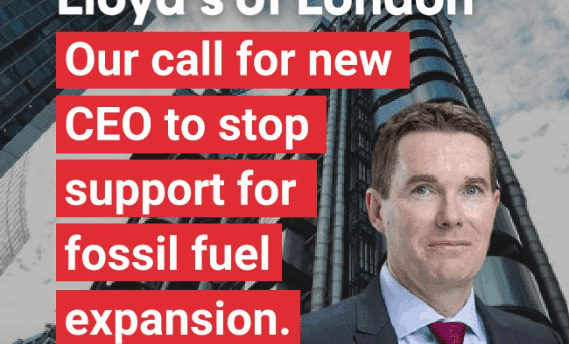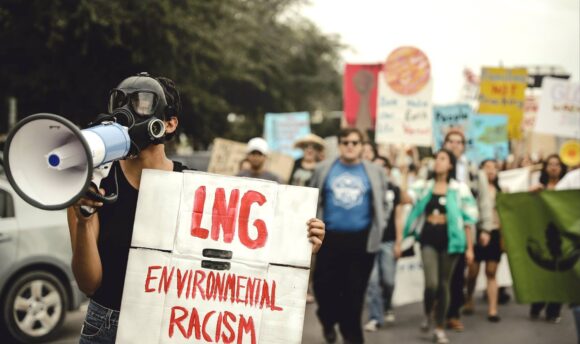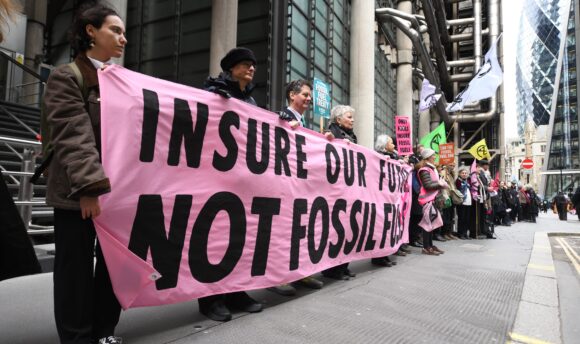Dear EU Commission,
With regard to the ongoing review of the prudential regulation of the insurance sector.
Insure Our Future is an international network of NGOs, which – for the past 5 years – are working to persuade the (re)insurance sector to act responsibly with regard to their climate impact.
The insurance sector is caught in an illogical position. On the one hand, it fuels climate change by its investments and by its provision of the (re)insurance that allows and supports fossil fuel extraction, transportation and burning. On the other hand, it insures against the impacts of climate change. This illogical position is both morally and financially bankrupt, and it puts the financial stability of Europe at risk.
We publish an annual scorecard that ranks the top 30 European and global (re)insurance companies, based on their climate policies. We are in regular contact with a large number of companies and actors within the (re)insurance sector in the EU and internationally.
In recent years, many leading insurance companies have reduced their exposure to coal and other fossil fuels. Currently, at least 26 major insurers have restricted insurance services for coal, and at least 70 have divested from the coal industry or ended new investments in the sector. 11 insurers have restricted underwriting for tar sands projects, yet only 1 company has ended cover for all new oil and gas production.
Our work is ongoing. We are urging the sector to finally and swiftly close the book on coal and to start urgently acting on oil and gas. Within the sector, there are some notable leaders but a great many more laggards, and even the leaders have a long way to go.
According to the IPCC’s 1.5°C report, CO2 emissions need to decline by about 45% from 2010 to 2030 to be consistent with global emission pathways to the 1.5°C goal (with no or limited overshoot). The combustion of fossil fuels continues to be the primary cause of disastrous climate change. The latest Production Gap report, which UNEP and other institutions published in December 2020, found that the world needs to decrease fossil fuel production by approximately 6% per year between 2020 and 2030 – 11% for coal, 4% for oil and 3% for gas respectively – to follow a 1.5°C-consistent pathway.
It is very clear by now that voluntary actions alone are not enough. The (re)insurance sector needs to be better regulated to properly account for its investments in fossil fuels, for the climate and financial risks created for society and for the companies themselves.
The climate crisis is escalating. In 2020, the planet experienced the warmest year on record (tied with 2016), a record-breaking Atlantic hurricane season, a record number of climate disasters across Asia, unprecedented wildfires in Australia, California and Siberia and record floods in the Sahel and other parts of the world. An analysis of global insured catastrophe losses indicates that the share of weather-related catastrophe losses has increased steadily to account for over 80% of insured catastrophe losses in 2018. In the EU, weather-related losses already amounted to €537 billion between 1980 and 2018, and only 35% of these were insured, leaving a large insurance protection gap. Globally, natural disasters created losses of US$ 210 billion last year, of which US$ 82 billion were insured (see Munich Re – January 2021).
The financial stability of the (re)insurance sector has been based on predictability of historical data, but that fundamental basis largely no longer exists.
The fact is that despite their knowledge and the available data, the sector is playing catch-up with the climate and it is losing. The existing models have been backward looking and not sufficiently able to take account of the changing risk profiles created by climate change. The freezing weather in Texas from winter storm Uri in February this year was yet another substantial unexpected (re)insurance loss event with estimates in the US$ 10-20 billion range.
There is an increasing acknowledgement in the sector of the need for forward-looking models that try to take account of climate science. There are efforts by some companies and some regulators to include forward-looking climate scenarios in stress tests. However, the severity and unpredictability of the climate impacts plus the reality of knock-on and secondary effects mean that all such predictions are liable to a high degree of uncertainty.
In the face of a potentially unmanageable climate crisis, insurance companies need to expand and accelerate their actions to support the transition from fossil fuels to renewable energy. And more must be done at the regulatory level to ensure that the (re)insurance sector is resilient to climate change and that it plays its role in a Just Transition.
The review of Solvency II (SII) is an opportunity to ensure that the sector is compelled to better account for its climate risks.
Exposure of (re)insurance companies to existing fossil fuels should be treated the same way as that of exposures considered to be highly risky under the current capital requirements of SII.
With regard to SII:
- Equity investments in existing fossil fuel assets should be given the highest available capital charge to reflect the higher risk.
- Investments in corporate bonds issued by existing fossil fuel companies should be treated the same way as investments in corporate bonds deemed as highly risky under Solvency II, meaning they should be given the same capital charge as bonds with a credit quality of B or lower.
- Investments in fossil fuel assets should not be eligible for the Matching Adjustment under SII.
Exposure of (re)insurance companies to new fossil fuel exploration and production should take account of the significant risk such activities create for societal financial stability. When calculating obligations arising from policies covering new fossil fuel exploration and production – a very high, or 100%, loss should be assumed. In addition, a capital charge of 100% should apply to any equity and corporate bond investments in new fossil fuel assets.
The Insure Our Future campaign is motivated by the quest for environmental justice. We would, however, like to point out that taking bold and urgent action on climate change is also in the financial self-interest of insurance companies and their shareholders.
In February 2020, Moody’s Investors Service concluded that insurers’ retreat from coal was “credit positive … as it protects them against potential climate change liability risk, and reduces the risk of their investment assets becoming ‘stranded’ – economically non-viable due to faster than expected transition to carbon-neutral alternatives.”
For example, Swiss Reinsurance Company’s study on insurance risks predicts that a global carbon tax of $100 per metric tonne would lower the revenues of energy, materials and utilities companies by 40 to 80%. The insurer underlines that this would severely increase the risk of non-repayment and would cause credit losses to the tune of hundreds of billions for assets tied to oil and gas reserves.
Fossil fuel exit policies also add value for shareholders because they can be considered a proxy for forward-looking management strategies. In an analyst report, Société Générale in December of last year concluded that “the insurance sector’s most important contribution to ESG is exiting coal underwriting.” The report priced the quality of insurers’ coal and ESG policies into their financial valuations, resulting in target price premiums of up to 6%.
Regulation of the (re)insurance sector appears to have often relied heavily on input from the sector. We hope that going forward the voice of civil society organisations will be better heard in this important space.
We are available to discuss details and look forward to your response.
Yours sincerely,
Insure Our Future network



